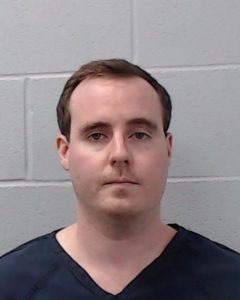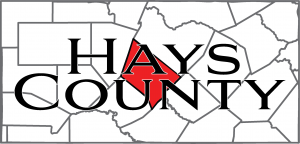
By Megan Wehring
KYLE — When Juneteenth was established as a federal holiday on Thursday, Pastor Marquet Curl advocated for educating all generations about all parts of American history.
Marquet Curl was one of nine panelists in the city of Kyle to discuss Juneteenth and why it is still important. Kyle hosted an open dialogue on Friday, June 18, to allow community members and leaders a platform to share their opinions about Juneteenth, also known as Jubilee Day or Freedom Day.
Juneteenth comm...
By Megan Wehring
KYLE — When Juneteenth was established as a federal holiday on Thursday, Pastor Marquet Curl advocated for educating all generations about all parts of American history.
Marquet Curl was one of nine panelists in the city of Kyle to discuss Juneteenth and why it is still important. Kyle hosted an open dialogue on Friday, June 18, to allow community members and leaders a platform to share their opinions about Juneteenth, also known as Jubilee Day or Freedom Day.
Juneteenth commemorates June 19, 1865, the day the slaves in Texas were informed about the Emancipation Proclamation, issued by President Abraham Lincoln on Jan. 1, 1863. On June 19, 1865, 250,000 enslaved African Americans in Texas were freed. This came two years after the signing of the Emancipation Proclamation in the United States.
Texas was the first state to make Juneteenth a significant holiday in the late 1970s and a state holiday in 1980. On June 17, 2021, President Joe Biden signed legislation into law to establish June 19 as Juneteenth National Independence Day, officially declaring Juneteenth a U.S. federal holiday.
Now that Juneteenth is recognized as a national holiday, more people could learn what it is, according to Anthony Davis of the Hays County Historical Commission.
“This isn’t supposed to be a day for one set of people,” Davis said. “This is an idea of liberation. This is an idea of being freed. That should be something everybody gets on board with, regardless of skin color. … This should be something that everyone knows.”
Another panelist had a different opinion on this year’s celebration.
“This can turn into different people, other people, to make money off the back of the hard work of [our] ancestors,” said Tyler Robinson, Texas State University senior. “You can create Juneteenth to be something as you are selling items and T-shirts. But you are forgetting the main thing that happened.”
Robinson explained that if people get too caught up in festivities and product marketing, it can be far too easy to forget why Juneteenth is important.
Mackenzie Smith, Student Government Director of Advocacy at the University of Texas, agreed that the U.S. needed to make Juneteenth a federal holiday — but that should not deteriorate the education people receive.
“We need to remember that just because they signed a piece of paper, that doesn’t mean our learning is over,” Smith said.
During the June 18 dialogue, audience members had the opportunity to interact with the panel by submitting answers to several questions.
Moderator Dex Ellison asked everyone to reflect on the past year and what they have learned about themselves, their community and society as a whole.
Morgan Curl, Assistant Director of the IMPACT Education Program, pondered on the question and said one thing came to mind when thinking of the past year — awareness.
“It’s made me more aware in my profession,” Morgan Curl said, “since we went back to school in a pandemic. It made me more aware of all of the kids and their safety, but also their mental health. I don’t think people realize just how much kids’ mental health was affected by COVID-19.”
Morgan Curl also explained that she has learned to be more aware of what she is teaching her 5-year-old daughter and what she surrounds her home environment with.
Law enforcement and its relationship to the community, a hot-button topic, was brought up as a point of discussion.
Donye Curry, Luling ISD assistant principal, said that she had the conversation with both her 14-year-old and 22-year-old sons about what to do in case they are pulled over by a police officer.
Kyle Police Officer Phillip Cleary offered his own perspective and said he is pushing for more participation in ride-alongs.
“We would love for you to understand what we do better,” Cleary said. “But we would also love to see what you see, what our citizens see and how they view the things we are doing. I think that would help make us better police officers and better people.”
Panelists gave their final thoughts on this question: Whom in your family or network of relationships inspires you?
“This community is a positive for me,” said Vanessa Westbrook of the Hays County Historical Commission, “because we can come together, sit down and have conversations, especially with us veterans who have done this before. We are all willing to sit at the table and be able to have a discussion as well as those who come into the audience.”
Marquet Curl wrapped up the dialogue with his view on community.
“There is no community without there being common unity,” Marquet Curl said. “It’s an important opportunity for the community to truly become unified. If we can become unified as a community, there are some great things we can accomplish and be a model for the other communities around us to have a prototype for them to follow.”
To watch the full Juneteenth Dialogue for Peace and Progress, please visit the city of Kyle’s Facebook page or https://www.youtube.com/watch?v=HR9PFuASU6g.













